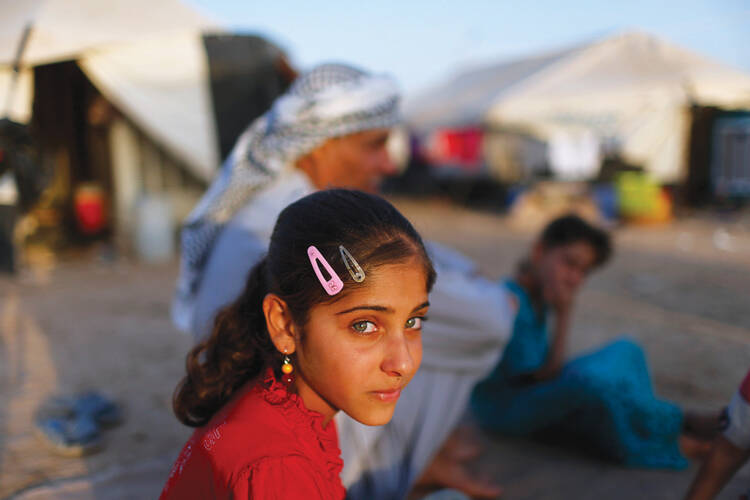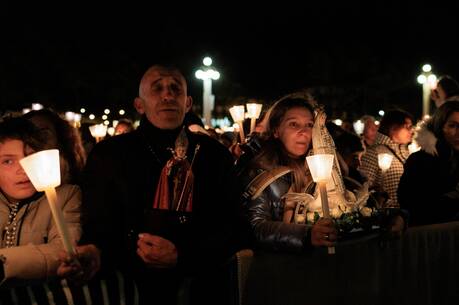Conditions for Iraqi Christians and Yazidis, who escaped from Islamic State militants into Iraq’s Kurdistan region, remain difficult as winter approaches, and Catholic Relief Services and other church agencies are stepping up their response accordingly. They are helping to “winterize” the sometimes haphazard shelters thrown together by displaced Christians and are beginning to plan for a long-term settlement within Erbil and other communities in Kurdistan where the internally displaced Iraqis have fled.
Sean Callahan, chief operating officer for C.R.S., returned in mid-October from a tour of conditions in northern Iraq, where thousands of Christians and members of other religious and ethnic minority communities have found refuge. “There’s been a lot of challenges, I think, for the displaced people because the numbers have come so quickly, particularly when [I.S. militants] took over Mosul.” As a result of the exodus, he said, “many, many people” are living in any available space on church compounds in Erbil. According to Callahan, families have created shelters in church halls and schools. “They are also in unfinished buildings in many cases, schools that were going to go up, government buildings. People have basically gone into any area where they can get a little shelter.”
Church agencies are rushing to prepare these temporary shelters “so they can at least last through the winter.”
“Even though we sometimes think of the Middle East as always being warm,” said Callahan, “in this area of Iraq, there’s some altitude and they actually get snow in some areas.”
Callahan believes it may be at least two years if not longer before Mosul residents can consider returning home. Many have lost everything. The hesitancy to return, he explained, is attributable not only to Islamic State brutality but also to the betrayal by former neighbors and friends of these Iraqi Christians. Many abandoned homes were looted by Muslim neighbors—many who had been considered friends. “People in the local community, frankly, did not come to their defense,” Callahan said.
As a longer term strategy, C.R.S. will begin contributing to the creation of more durable shelters and seeking to create job opportunities for the displaced Christians and Yazidis. “The idea is to have a site where they are still in Iraq, still in the Middle East, and hopefully they can resettle and continue to live there,” Callahan said, “even if they don’t feel security in either the short term or the long term in going back to where they were in either the Nineveh Plain or in places like Mosul.”
Callahan expects that many here hope to emigrate, which will further reduce the rapidly diminishing Christian population in Iraq. “They’re really traumatized; they are afraid for the security of themselves and their children,” Callahan said. Many told him they would go to the United States in a heartbeat if they could. Callahan suggested U.S. legislators need to take a hard look at U.S. refugee quotas, currently set so low that emigration to the United States is not a real option for persecuted Christians in Kurdistan.
Callahan said authorities of the Kurdish Regional Government have been “tremendously supportive” but are hard-pressed by the crisis and are not receiving the support from the Iraqi central government that they had counted on. He added that one little-observed aspect of such a humanitarian catastrophe is the hardship imposed on host communities. Not only are Kurd fighters expected to defend their vulnerable guests from further attacks, but normal life for Kurds has become in some respects as disrupted as it is for the fleeing Christians. Many schools in Erbil, Callahan pointed out, have been taken over by displaced Christian and Yazidi families, and it is unclear how the school year for Kurdish children can proceed.








